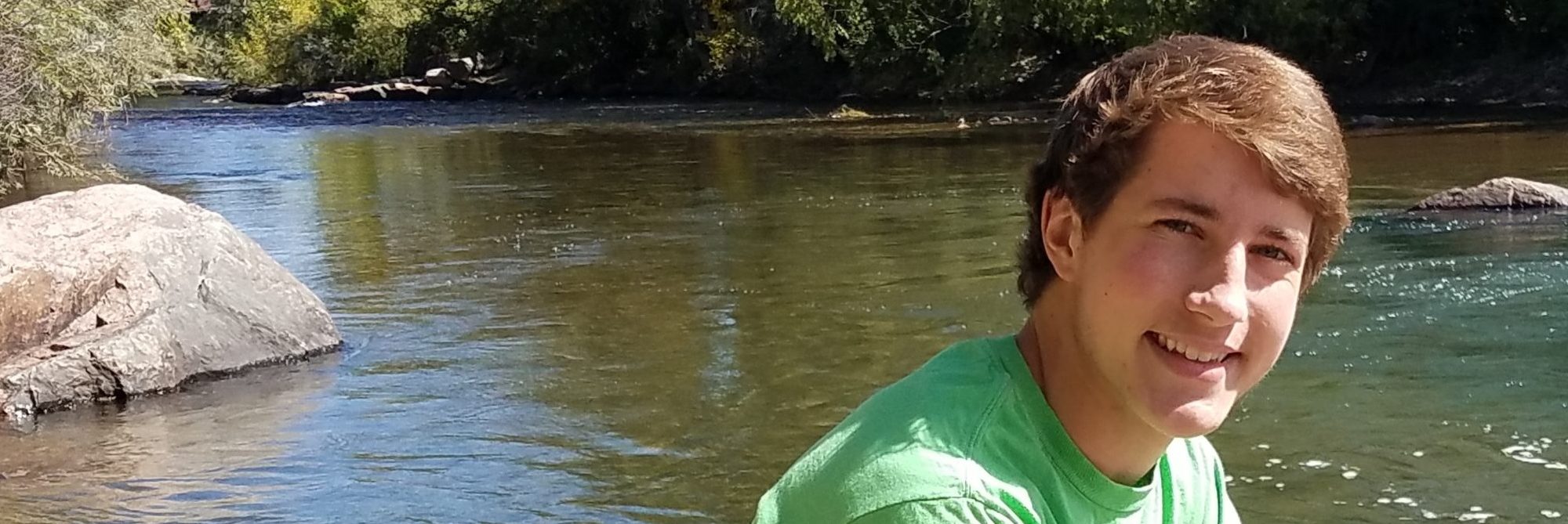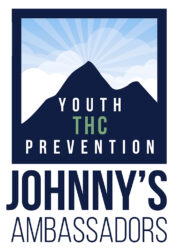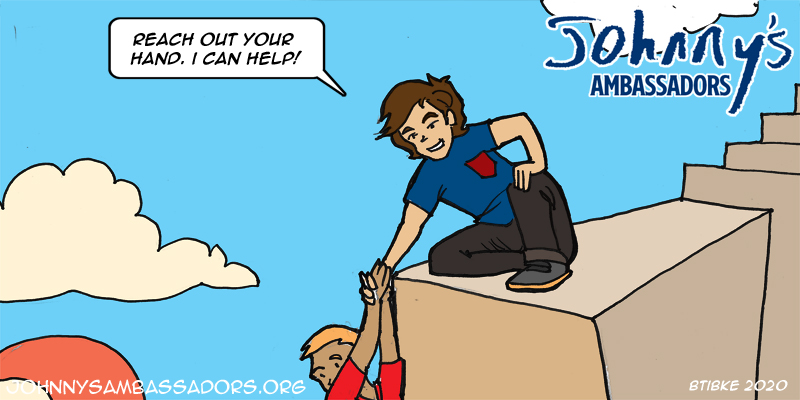By Laura Stack
There’s a wise old saying that goes, “Into every life, a little rain must fall.” Since the beginning of this year, America has experienced a figurative typhoon. History will remember 2020 as an annus horribilis during which the COVID-19 pandemic killed hundreds of thousands worldwide and sickened millions, damaging our economy in the process. While we don’t have all the hard data yet, experts have suggested the conditions will cause increased adolescent depression, mental illness, and substance abuse rates, leaving more of our children at risk for suicide.
I often think about Johnny and wondered how he would have fared during all this if he were still alive today. He died in November 2019, before most of the U.S. had even heard the term “COVID.” I believe the isolation and lack of work and friends would have made his mental illness worse; however, I do fantasize about him not going anywhere for two months. “But what WOULD he have done?” I keep asking myself.
We each have a set of values we cling to that help define our personality and actions, which act as an anchor to hold onto in order to keep us mentally and spiritually in place. I have a hint about how he would have reacted from a college essay and PowerPoint show he wrote three months before he passed away, which outlined his Five Essential Values:
- Altruism
- Patience
- Conviction
- Enthusiasm
- Gratitude
I used his essay for the basis of my Eulogy at his memorial service. Johnny was such an encourager and a loyal friend. From teaching preschoolers at Sunday School with me for many years, delivering Thanksgiving dinners to those in need, cleaning up in the community with our church, giving a homeless man his shoes, and giving away my umbrella (you’ll hear this in the eulogy), Johnny received great joy from helping others. I believe we can all learn something from his five values, which are crucial in this uncertain world.
So, this week, I am kicking of a series of five articles based on Johnny’s 5 Values, focusing how to use them as coping skills to reduce anxiety and stress. Today, we focus on his number one value, Altruism.
Altruism Defined
According to the dictionary, altruism is “the belief in or practice of disinterested and selfless concern in the well-being of others,” at least for humans. The concept was first named by French philosopher Auguste Comte in the 19th century, as an opposite for “egoism,” the state of caring only for oneself. The term derives from the Latin “alteri,” or “other people.” As Johnny put it in his essay:
“To me, altruism means being selfless or giving to other people, even when there may be nothing to gain and something to lose. Altruistic people do things for the collective interest instead of their own.”
Many of us practice altruism without realizing it. It can be as simple as holding a door for someone. But despite the definition, it isn’t always disinterested; most of us feel good about helping others. To some people, it’s about giving back or paying it forward. One school of thought argues there’s no such thing as true altruism; we do selfless things because we always get something out of it, one way or another. Helping others gives us an intrinsic reward, so we repeat it.
Whatever the case, altruism is one of the fibers that stitches together human society. As Johnny put it in his presentation,
“Practicing altruism is important because it helps benefit the whole of society and mankind. Also, being giving to other people will help you in the end, because altruism promotes a brighter future for everyone. As the saying goes, what goes around, comes around.”
You Don’t Have to Be a Saint
One person Johnny greatly admired and wrote about was Mother Teresa of Calcutta, who dedicated her life to public service. He considered her “the epitome of altruism.” But you don’t have to be a saint or Nobel Prize winner, or risk your life to save someone else, to be altruistic. As Johnny points out, you can get the same benefits of altruism from giving your family gifts at Christmas, helping at a homeless shelter, or serving in a soup kitchen. Often, the little things matter the most. As Johnny put it,
“I practice this day to day in often not too impactful ways, such as letting someone go ahead of me in traffic, giving money to homeless people and people who I see are desperate, or giving my spot to someone on the light rail if it’s pretty packed and they could use the seat more.”
Sometimes altruism may cost you a dollar or two, or get you where you’re going a little later, or result in aching feet from standing too long. But the reward you get, even if it’s just a warm feeling in your heart and a little stress relief, is more than worth the cost. Ultimately, I view altruism as a form of love, both for others and for yourself.
Practice Altruism as a Coping Technique
Why do things for other people? Because it’s good for you—it lowers your stress levels and increases your happiness. By measuring hormones and brain activity, researchers have discovered that being helpful to others delivers immense pleasure. Human beings are hard-wired to give to others. The more we give, the happier we feel. Studies have found that those who volunteer have a lower mortality rate than those who do not. Perhaps most important, on a personal level, knowing that you’ve helped someone (in however small a way) can ease sadness and make your own life just a little better. It doesn’t take much to shine a little sunshine on someone else’s day. It’s worth helping someone else as a means of coping with life’s anxieties. What can you do to increase the altruism in your life?
Our work through Johnny’s Ambassadors helps Johnny help others and keeps his spirit of altruism alive. That’s what he would have wanted. If you’d like to practice a little Altruism, please join us in being one of Johnny’s Ambassadors and partner with us to prevent youth substance abuse, mental illness, and suicide.
As the Magic Penny song most of us learned as a child says, “Love is something if you give it away; you end up having more!”



Thank you so much for sharing this with us! Johnny’s life is continuing through your sharing his story. I know I will continue to think of him and others because of it.
Hi, Laura, thank you so much for writing and letting me know your great feedback! It’s encouraging to know sharing Johnny’s story is helpful to you. Much love.
Johnny left a tremendous Legacy which will live on and help many others! God bless you and John.
Thank you, Dave, we must save our youth!